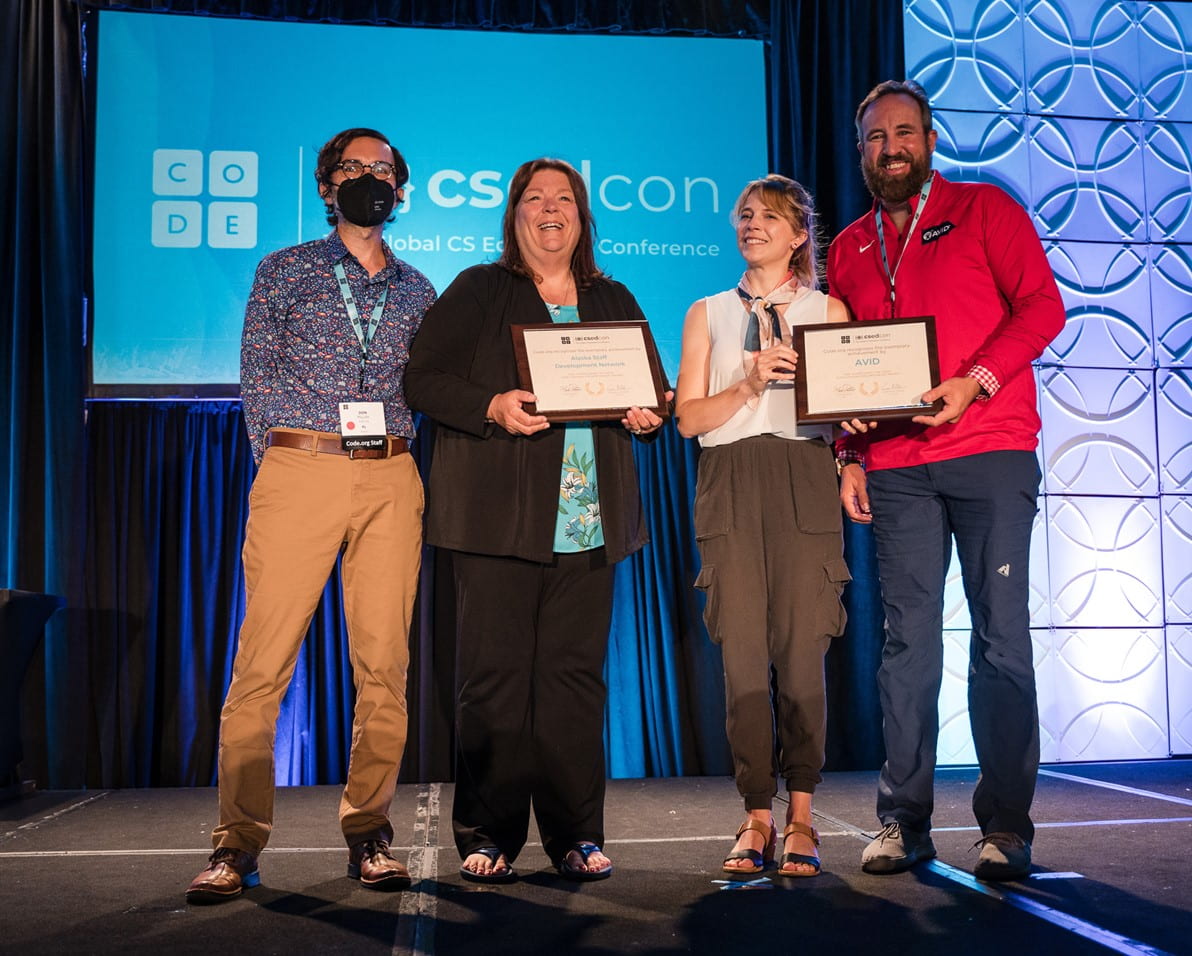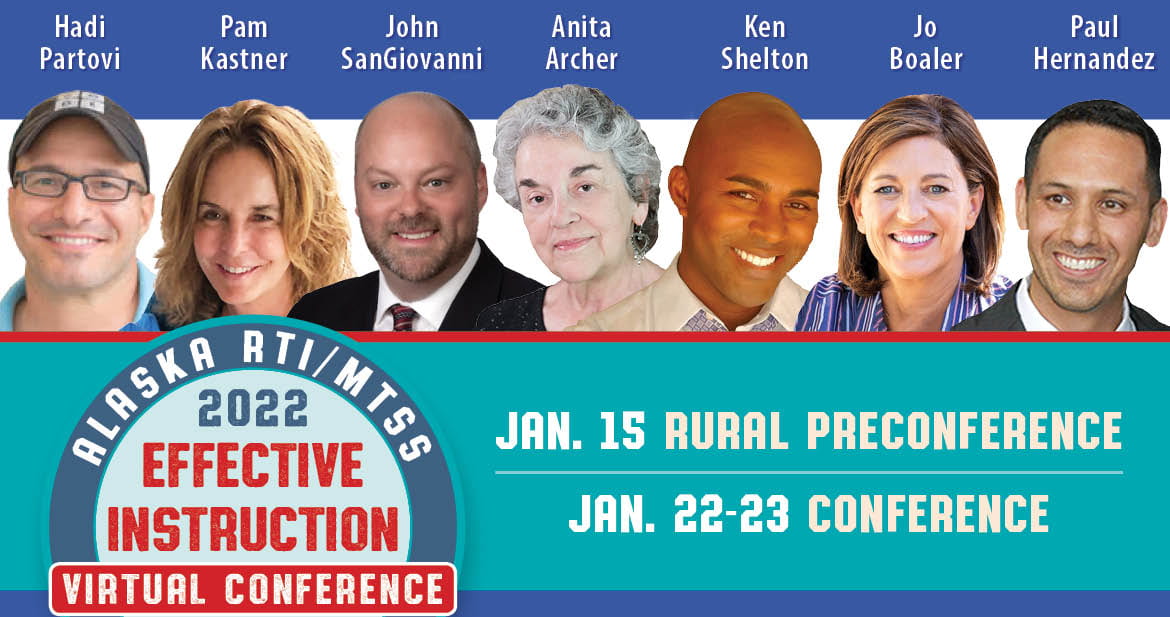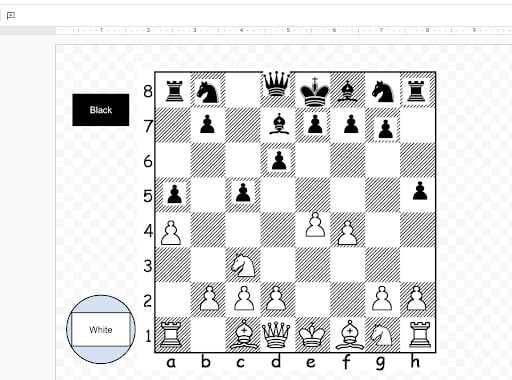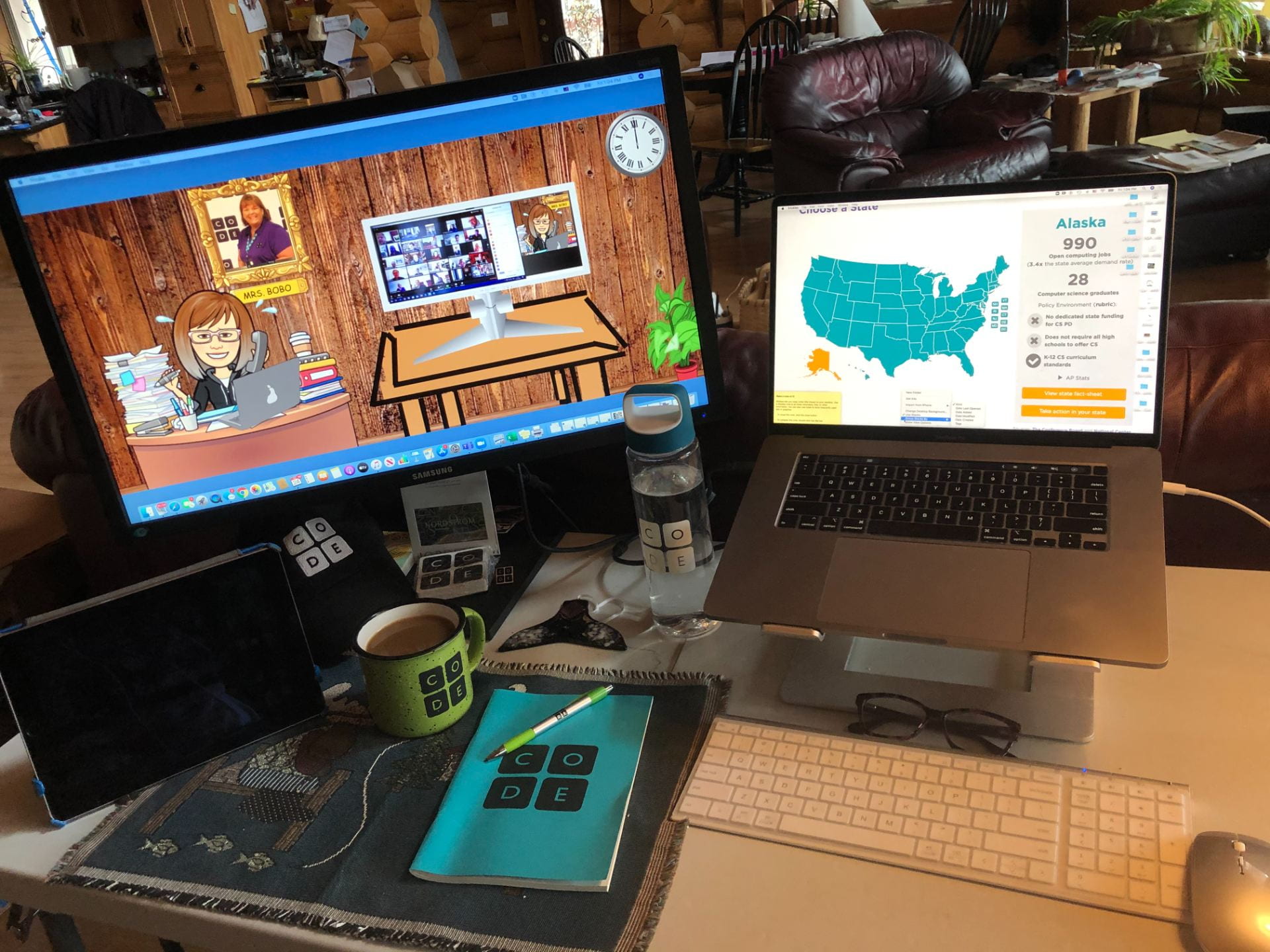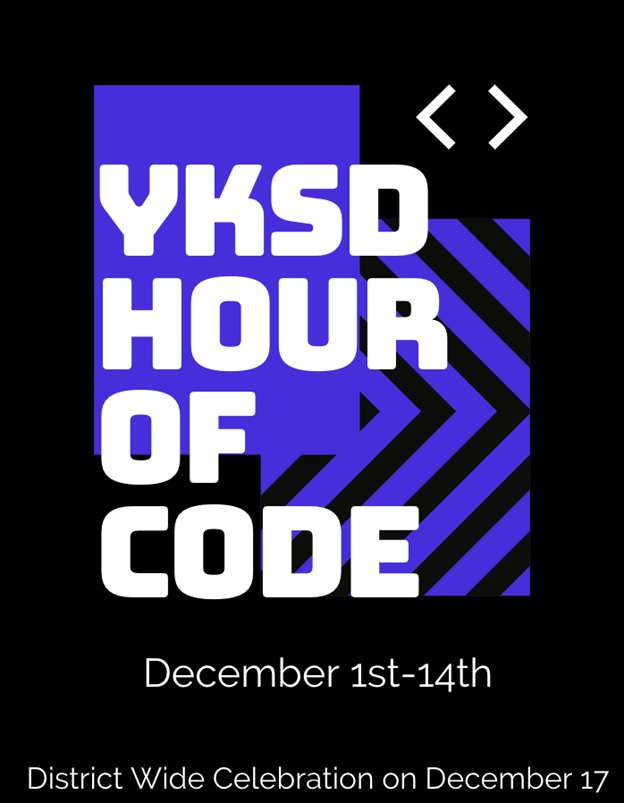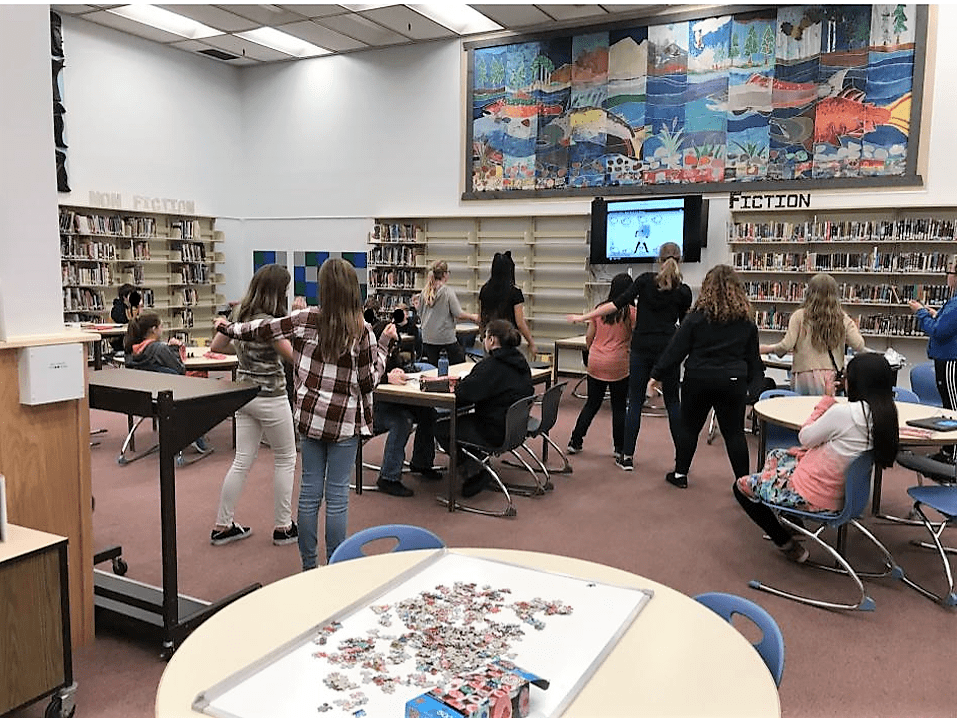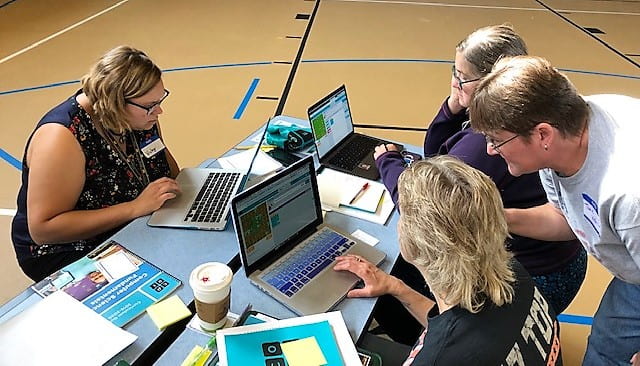
Introduction
The rugged terrains of Alaska are not only home to natural wonders but have also become a cradle of growth for a different kind of exploration since 2019—one that empowers the youth with critical and computational thinking and digital fluency. The infusion of computer science education in K-12 settings in Alaska has not only reshaped students’ perspectives on technology but has also stimulated a movement of continuous professional development for educators. This journey from 2019 to the present showcases how Alaska is committed to equipping its students with essential skills for the digital age, careers, and holistic academic growth.
Nurturing Educators as Pioneers
In 2019, a transformative partnership between Code.org and the Alaska Staff Development Network (ASDN) marked a significant milestone in Alaska’s educational landscape. This collaboration was driven by the shared vision of enhancing K-12 computer science professional development for all students. Recognizing the importance of preparing students for a technology-driven world, Alaska Dept. of Early Childhood Education (DEED) created and approved K-12 Computer Science Standards for our Alaska Students. Continue reading ‘Nurturing Tech-Savvy Minds: Fostering K-12 Computer Science Education and Professional Development in Alaska (2019-Present)’ by Cheryl Bobo
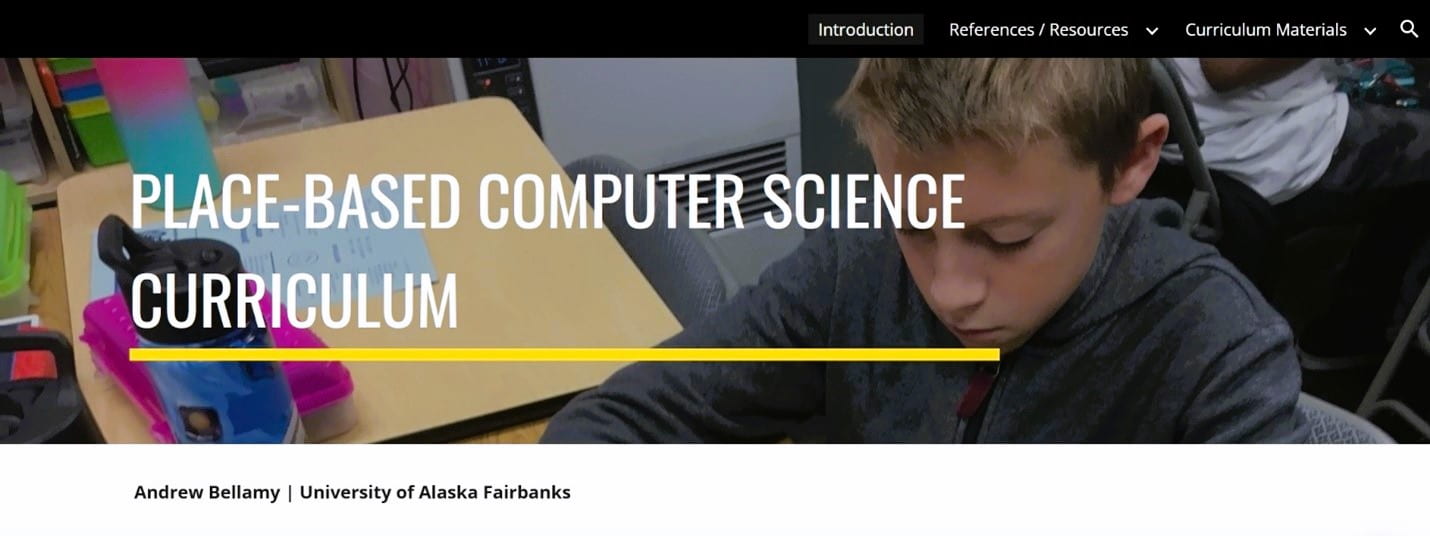 Place-Based Computer Science Curriculum Website
Place-Based Computer Science Curriculum Website